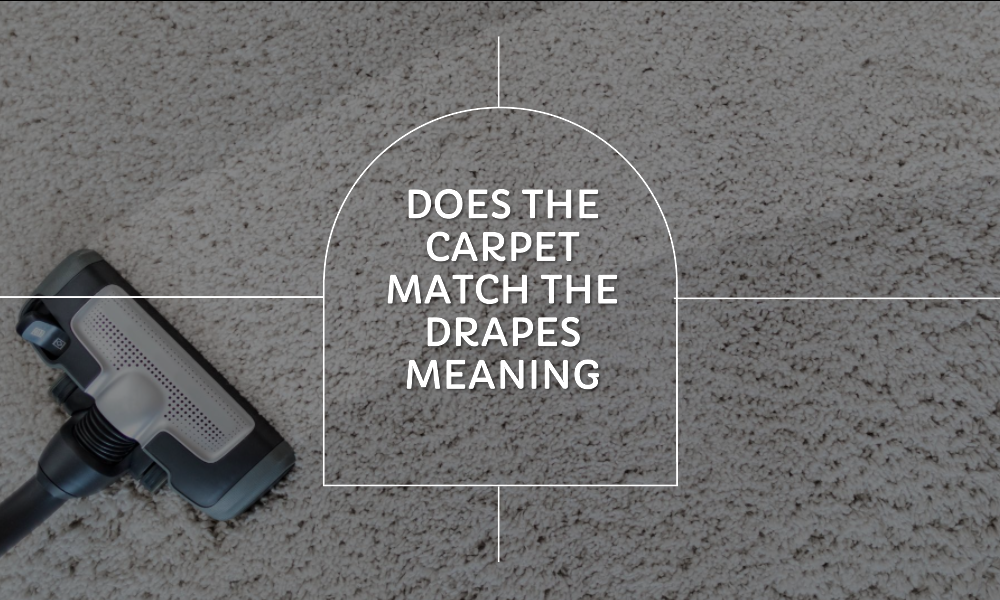Does The Carpet Match The Drapes Meaning

“Does the carpet match the drapes?” is a phrase you may hear in various contexts, but what does it actually mean? The phrase, despite its broad application, carries a very specific connotation, mostly used informally and often in jest. However, due to its nature, it’s important to use it appropriately and understand its true meaning.
Breaking Down the Phrase
On the surface, “does the carpet match the drapes?” might seem like a question about interior design. Indeed, in a literal sense, it could refer to whether a room’s carpeting corresponds with the color or style of the window treatments. However, in most instances, this is not how the phrase is used.
This phrase is a colloquial and indirect way of asking if a person’s hair color is natural. More specifically, it queries whether a person’s head hair color (the drapes) matches their body hair color (the carpet). It’s often directed towards individuals with particularly striking or unusual hair colors, especially those suspected to be the result of dyeing or bleaching.
Usage and Connotations
“Does the carpet match the drapes?” is generally considered cheeky, and depending on the context, can even be somewhat impolite or inappropriate. It’s important to use this phrase with caution, as it can be invasive and too personal for some individuals. The question delves into a person’s physical attributes, which can be considered private.
Due to its underlying connotations, it’s typically used in informal and familiar settings. Even so, it’s essential to consider the comfort and personal boundaries of the individual to whom it’s addressed. Using it in a professional environment or towards someone with whom you are not very familiar can be considered unprofessional or offensive.
A Changing Cultural Context
In recent years, with changing societal norms and increasing awareness around issues of consent and personal boundaries, the usage of such phrases is becoming less common. Some people may find it humorous or endearing, but it’s important to remember that humor can vary greatly among different individuals and cultures. What one person finds funny or harmless, another may find uncomfortable or invasive.
While such idioms are a part of the richness of language and reflect societal trends and attitudes, they also serve as a reminder of the need to be mindful of our words. The way we communicate should respect personal boundaries and promote a comfortable and inclusive environment.
In conclusion, the phrase “does the carpet match the drapes?” has a specific meaning that extends beyond a literal interpretation of its components. However, its usage is closely tied to context and should be used thoughtfully to ensure it doesn’t overstep personal boundaries or cause discomfort.







